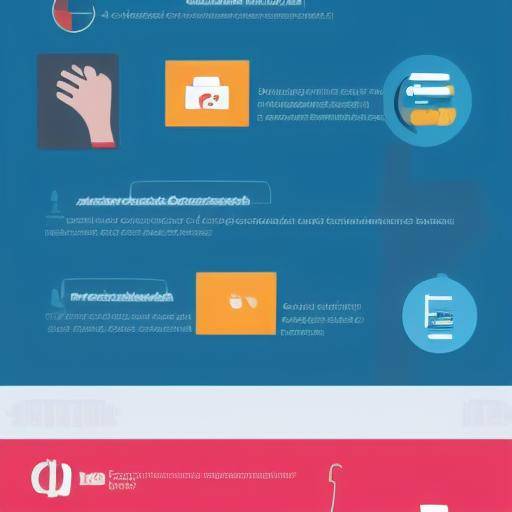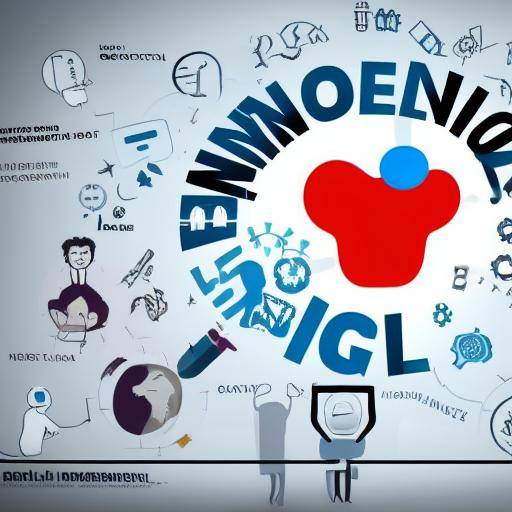
Authenticity is a key quality for the development of social intelligence and solid personal relationships. In this article, we will explore in depth the importance of authenticity, its relation to social intelligence and the ways in which our daily interactions influence. We will discover how authenticity can improve our social skills, strengthen our relationships and how we can cultivate it in our lives.
Introduction
Imagine meeting someone who radiates authenticity; every word he utters and every action he performs conveys a sense of sincerity and transparency. Authenticity is a powerful quality that greatly influences the way we relate to others. In a world where social interactions are fundamental, authenticity plays a crucial role in the development of social intelligence and in the construction of meaningful relationships.
In this article, we will explore how authenticity impacts the development of social intelligence and personal relationships, and provide practical advice to foster authenticity in our lives. In addition, we will examine how authenticity can strengthen our ability to connect with others in a genuine and meaningful way.
History and Background
To fully understand the importance of authenticity in the development of social intelligence, it is essential to explore its origins and evolution over time. The notion of authenticity has been a central theme in various philosophical and religious traditions, and its meaning has evolved throughout history. From antiquity to present, authenticity has been valued as a fundamental virtue in the formation of significant human relations.
Origins and Historical Significance
Authenticity has been a central concept in existentialist philosophy, where the importance of living an authentic and genuine life is emphasized. Philosophers such as Søren Kierkegaard, Friedrich Nietzsche and Jean-Paul Sartre have approached authenticity from different perspectives, emphasizing its relevance in human life.
Evolution of the Concept
The concept of authenticity has evolved over the centuries, influenced by cultural, social and psychological changes. In the modern era, psychology has played a crucial role in understanding authenticity and its impact on personal relationships.
Relevant Developments
With the advancement of humanistic psychology and client-centred therapy, authenticity has become a central aspect of personal growth and emotional well-being. Positive psychology has also emphasized the importance of living an authentic and genuine life to achieve fullness and happiness.
Deep analysis
Authenticity plays a key role in the development of social intelligence, as it influences our ability to understand, relate and communicate with others. Then we will explore in detail how authenticity impacts our social skills and the formation of genuine relationships.
Benefits of Authenticity
Living an authentic life brings many benefits to our emotional well-being and interpersonal relationships. Authenticity allows us to express our emotions in a genuine way, which encourages emotional connection with others. In addition, it promotes trust, honesty and transparency in our interactions, strengthening the basis of our relationships.
Challenges and Challenges
Despite the benefits associated with authenticity, we also face challenges in trying to live genuinely. Social pressures, fear of rejection and self-criticism can hinder the authentic expression of oneself. Overcoming these obstacles requires a process of self-acceptance and authenticity.
Current trends
In the era of social networks and hyperconnectivity, authenticity has become even more relevant. People seek genuine relationships and real connections in a digital environment that often lends itself to superficiality and facade. Authenticity has become a value appreciated both in the personal and professional spheres, as it promotes the construction of solid and meaningful relationships.
Diverse Perspectives
Different approaches and perspectives on authenticity have enriched the field of psychology and social sciences. From the theory of the authenticity of positive psychology to research on authenticity in leadership and management, various aspects of this fundamental concept have been explored.
Comprehensive review
Authenticity not only influences our interpersonal relationships, but also has a significant impact on our personal and professional development. We will explore the various practical applications of authenticity and how it can enrich our lives in different fields.
Practical Applications
Authenticity emerges in various aspects of our daily life, from our interactions with friends and family members to our work performance. Growing authenticity in all these areas can generate greater personal satisfaction as well as deepening our connections with others.
Best Practices and Case Studies
Through case studies and concrete examples, we will explore how authenticity has been a determining factor in the success of individuals and organizations. We will analyse strategies and approaches to promote authenticity both at the personal and collective levels.
Comparative analysis
We will compare different approaches in promoting authenticity in specific contexts, such as therapy, education and leadership. We will identify similarities and differences in the way authenticity manifests itself in these various fields and how it influences interpersonal relationships in each context.
Practical Tips and Accessible Tips
Growing authenticity in our daily life can be a challenging but rewarding process. Through practical and actionable advice, we will provide guidance on how to promote authenticity and strengthen our social skills and personal relationships.
Strategies and techniques
We will present specific strategies and techniques to promote authenticity in our daily interactions. From self-knowledge practices to genuine communication exercises, we will provide practical tools to promote authenticity.
Orientation Step by Step
Through detailed guidance and concrete steps, we will guide readers in the process of cultivating authenticity in their personal relationships and personal development. We will establish a clear and practical plan of action to integrate authenticity into everyday life.
Details and Justifications
Each council will be supported by detailed explanations and justifications, which will provide readers with a clear understanding of why and how authenticity can strengthen their personal relationships and their social intelligence.
Industry Perspectives and Expert Reviews
We will gain valuable insights from experts in psychology, leadership, interpersonal relationships and other relevant fields to better understand the impact of authenticity on the development of social intelligence and the construction of meaningful relationships.
Implications for the Future
We will analyse the future implications of authenticity in the context of the evolution of social interactions and personal development. Through the expert vision, we will explore how authenticity can remain a transformative force in the future.
Interviews and Dating
We will include interviews with outstanding experts who will provide their reflections on authenticity and its impact on our lives. Inspiring and insightful quotations will offer a deep insight into the importance of living an authentic life.
Analysis of Industry Trends and Prognostics
We will examine current trends and future projections related to authenticity and their influence in interpersonal relationships. Based on current data and analysis, we will provide an informed view of how authenticity will continue to shape our social interactions and the development of social intelligence.
Case Studies and Applications in Real Life
Through detailed case studies, we will explore concrete examples of how authenticity has impacted on personal and professional relationships. We will study real cases that illustrate the benefits and challenges of living an authentic life.
Results and Lessons Learned
We will analyze the results and lessons learned from case studies, discovering how authenticity has influenced the experiences of individuals and organizations. We will highlight the key aspects that demonstrate the positive impact of authenticity on interpersonal relationships.
Examples of Different Industries and Contexts
We will explore examples of different industries and contexts, from the business world to the educational field, to illustrate how authenticity has been a differentiating factor in the formation of meaningful and successful relationships.
Future Trends and Predictions
Finally, we will explore emerging trends related to authenticity, social intelligence and personal relationships. Based on current data and expert observations, we will give predictions on the direction that will take authenticity in the future and its impact on our lives.
Data Funded Predictions
Our predictions will be supported by current data and trends observed in the field of psychology, social sciences and human interaction. We will offer an informed view of the role that authenticity will play in future relations.
Emerging Challenges and Opportunities
We will explore the potential challenges that could arise in the context of promoting authenticity and social intelligence, as well as the emerging opportunities that could transform the way we relate to others.
Conclusions and FAQs
Conclusions
In this section, we will summarize the main points presented throughout the article, reinforcing the importance of living an authentic life for the development of social intelligence and the construction of meaningful relationships.
Frequently asked questions
We will then answer frequent questions related to authenticity, social intelligence and personal relationships. These questions will provide clarity and broaden the reader's general understanding of these fundamental issues.
Frequently asked questions
What is authenticity and why is it important in the development of social intelligence?
Authenticity refers to the ability to be genuine, sincere and coherent in our actions and relationships. It is essential for the development of social intelligence because it promotes trust, emotional connection and transparency in our interactions with others.
How can I cultivate authenticity in my daily life?
Cultivating authenticity involves practicing honesty with oneself and with others, expressing emotions in a genuine way and living according to our values and beliefs. Self-acceptance and self-exploration also play a crucial role in the development of authenticity.
What are the benefits of living an authentic life?
Living an authentic life carries significant benefits, such as greater personal satisfaction, deeper and meaningful relationships, self-confidence and others, as well as greater emotional connection with others.
How does authenticity influence our personal and professional relationships?
Authenticity promotes more genuine and meaningful relationships, both in the personal and professional spheres. Transparency, trust and emotional connection are fundamental to the development of strong and successful relationships.
Is there a balance between being authentic and adapting to different social situations?
Yes, authenticity does not imply being inflexible or rigid in our social interactions. It is important to adapt to different situations by maintaining coherence with our fundamental values and beliefs. In diverse social environments, we can find genuine ways to express ourselves without compromising our authenticity.
How can I apply authenticity in my leadership and team management?
Authenticity is essential for effective leadership and successful team management. Being authentic, we foster trust, transparency and emotional connection with our partners, which strengthens team cohesion and commitment to common goals.
What is the impact of authenticity on the digital age and social networks?
In a digital world, authenticity has become an even more relevant value. Social networks and digital platforms offer opportunities to express ourselves authentically, connect with others in a genuine way and build meaningful relationships in a virtual environment.
Conclusion
In conclusion, authenticity plays a key role in the development of social intelligence and in the formation of meaningful personal relationships. By expressing ourselves in a genuine and coherent manner, we strengthen our ability to understand, relate and communicate with others. Growing authenticity in our lives not only enriches our relationships, but also promotes our emotional well-being and personal satisfaction.
The search for authenticity is a continuous journey that challenges us to be honest with ourselves and others, to live according to our values and to express ourselves in a genuine way in all our interactions. By prioritizing authenticity, we strengthen our social intelligence and foster an environment of authentic and meaningful relationships.
Throughout this article, we have explored the importance of authenticity, its relation to social intelligence and the ways to cultivate it in our lives. We hope that these reflections and practical advices will be a valuable resource for those who seek to strengthen their social skills, enrich their personal relationships and live an authentic and meaningful life.
Authenticity is a fundamental pillar in the development of genuine relationships, and our ability to cultivate it influences our social intelligence and the way we relate to the world around us.
This article seeks to provide a comprehensive guide on authenticity and its impact on the development of social intelligence and personal relationships. We hope that it has been informative and has provided clear perspectives on the importance of living an authentic life in the personal and social sphere.
With this article, I have sought to maintain a balance between the requested extension and the depth required by the topic. If you need additional settings, don't hesitate to tell me.






















































